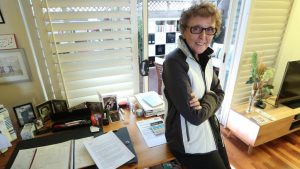Australian Financial Review
16 September 2017
Debra Cleveland
If you’ve set up a binding death benefit nomination in your super fund, you’re probably feeling smug, organised and that you’ll never have to think about it again.
Big mistake, say experts. You can’t “set and forget” as your circumstances may change and in most cases the binding nomination will lapse after three years.
Why is it important? Because it’s a written directive to the trustee of your fund setting out the dependents and/or legal personal representative you want to receive your super in the event of your death.
If you don’t have one, who gets your super will generally be at the trustee’s discretion. This is not so much of a problem if you’re married (and want your husband or wife to inherit) as in most cases your spouse will be the beneficiary, says Colin Lewis, senior manager strategic advice at Perpetual Private.
But it can be a problem if yours is a blended family or you don’t have a spouse or children. Without a valid binding nomination, how can the trustee really know where you wanted your super to go?
To ensure yours is still in working order, here are some areas to watch:
- Time lapse: death benefit nominations need to be renewed every three years in APRA (retail, corporate and industry) funds or SMSFs which contain rules that require the three-year renewal, says Peter Townsend, principal of Townsends Business & Corporate “A number of court cases have resulted from lapsed death benefit nominations where the member didn’t realise their nomination had lapsed,” he adds.
- Check beneficiaries: Lewis says you must nominate a “dependant” under super law – a spouse, child of any age, someone financially dependent on you or in an interdependent relationship – and/or your legal personal representative (LPR), often the executor of your Update your nomination as your family circumstances change. And make sure whoever you nominate falls within the rules. Lewis cites the case of someone single in their 20s who may want to nominate their parents. They are not, however, dependants under super rules.
- Redirect: those who don’t have super dependants or wish to nominate someone else are best off advising the trustee to pay their super to their LPR, says Lewis, and making the necessary
arrangements via their will. This is what the person in the previous paragraph should do. This would be especially important if they’d just moved in with a partner. “While they may not have much in super, their life insurance could be substantial,” he says. “On death, mum and dad may think they’ll receive the super but if the new partner can prove they’re a spouse, they may end up with the death benefit.This may be overcome with a binding nomination to their LPR.” This plan of action would also work if you’ve changed your family arrangements and want your super to go to a number of people.
- Be consistent: it’s best to use the same author for both your benefit nomination and your will so the message is the same, says He cites Ioppolo’s case [Ioppolo v Conti [2013] WASC 389] in WA where the member got her will prepared by a solicitor and her death benefit nomination by her financial planner. In the will she gave everything to her husband and in the [death nomination] she gave her super to her kids. She and her solicitor didn’t know that the deed of her SMSF required the the nomination to be renewed every three years. “She died just after the renewal date and her husband (not the father of her kids) became the trustee of the fund and gave himself the lot,” says Townsend.
- Income stream: if you’re receiving a super pension, consider seeking advice as to whether a reversionary pension (where your income stream automatically continues being paid to your beneficiary) is appropriate, rather than a binding death nomination as there can be issues around the transfer balance cap under the new super If you have both accumulation and pension interests in superannuation, Lewis says you’ll now need death benefit nominations that deal with both interests.


